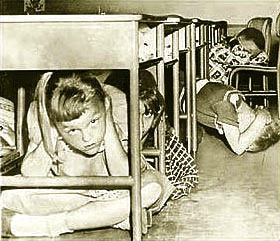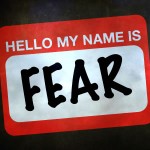 Every prepper parent thinks first and foremost of their children. We want them to be prepared, But, we don’t want to terrify them. The nightmares of what may be ahead is a burden for parents to carry for their children. If we raise them with too much fear, they will lack the confidence and optimism to meet life’s challenges.
Every prepper parent thinks first and foremost of their children. We want them to be prepared, But, we don’t want to terrify them. The nightmares of what may be ahead is a burden for parents to carry for their children. If we raise them with too much fear, they will lack the confidence and optimism to meet life’s challenges.
We need to look at the goal rather than the reasons. As children grow older, we can gradually introduce the topics that give us cause to worry for our future. Young children are amazingly resilient. Part of this comes from a general acceptance of things as they are. This, of course, can be bad if the circumstances they encounter are negative. Thus, kids who grow up abused think this is normal and kids who grow up tethered to government welfare programs think that’s normal. A child’s first, most important role models are teachers and parents.
As a parent, you can set an example by living a prepared and self-sufficient lifestyle. Your children will accept that it’s right to have plenty of essentials on hand “just in case”. You can use events that may occur such as storms or blackouts as teaching opportunities. At these times, even a child can see that it’s good to have what is needed on hand. Your children will grow up more secure knowing that no matter what happens, you will be ready and able to take care of them.
As they grow up, you can gradually accustom them to being responsible for themselves. At age appropriate times, let them learn how to prepare their own food. Starting with easy things like sandwiches working your way through using the toaster, microwave and stove. If you garden, let them participate as they are able. Nothing will make a child love vegetables more than growing his or her own. Family chores are out of fashion these days. But, they are a key to learning responsibility. It is my opinion that chores should not be tied to money. Children need to learn that in any group, responsibilities must be shared. Again, being age appropriate and reasonable matters, we are not aiming to raise slaves.
Participation in “old fashioned” family activities can be extremely valuable. Camping trips are a great way to learn, teach and practice skills. Try different cooking methods and ways of starting fires. Fishing can usually be introduced at a fairly young age. Hunting when they are older. If you keep guns, be certain to teach safety rules from the beginning. Children can learn many important lessons in the context of family fun.
As they are old enough to understand and be interested in news, discuss what they see and hear. Take the opportunity to explain that they can’t believe everything they hear. Let them know which things you are concerned about. At the same time, always reassure them that you are there for them. Especially when it comes to discussing crime, they need to know that you will protect them. As they grow more independent, teach them situational awareness and ways to keep themselves safe. Encourage them to discuss fears with you as well as hopes and dreams. Strong families produce strong young people.
These are the basics. In the future, I will write in more detail about various preparedness measures and how to introduce these to children. I believe it is essential to avoid scaring children with potential scenarios. However, no matter whether the future is better or worse than we believe, raising confident, responsible, self-sufficient young citizens is our duty as parents.







